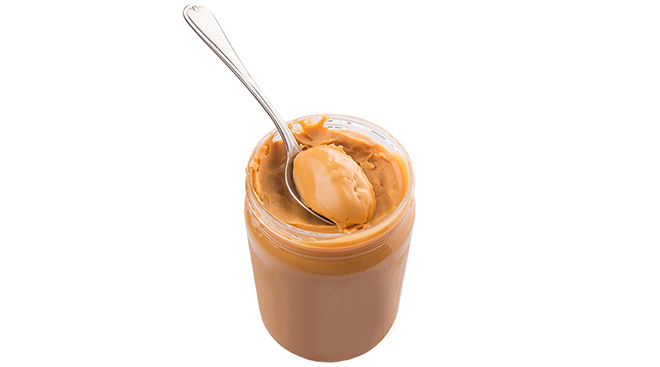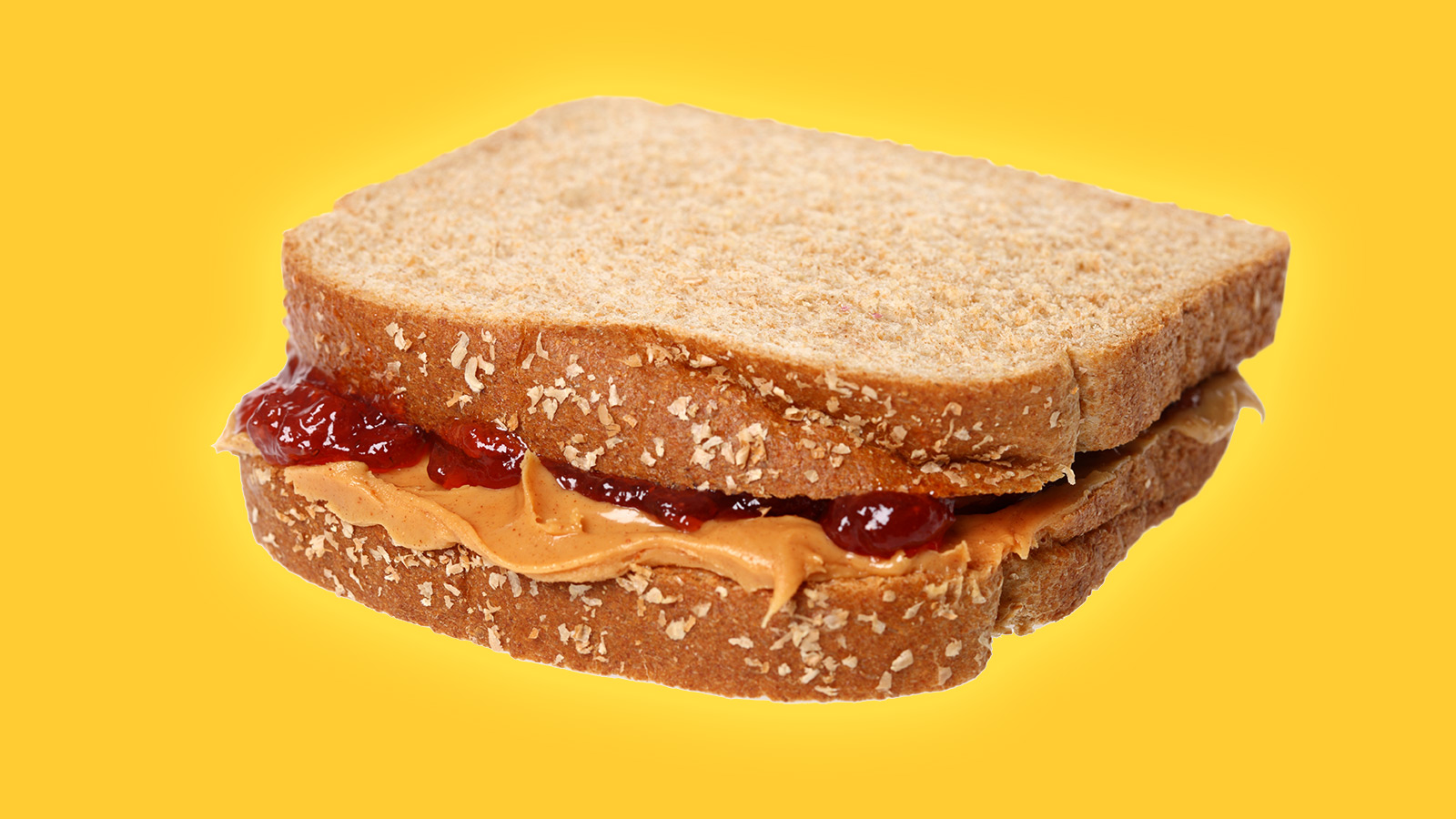Every day since the election, I’ve awoken in the fetal position and thought: “President Trump?” For the first time in my life — since I was an overeager paperboy in my childhood home of Lexington, Massachusetts — I haven’t wanted to read, watch, or listen to the news. Too depressing. Enough already!
Today I did something else for the first time: I made myself a peanut-butter-and-jelly sandwich for breakfast. And because eating in the fetal position is never a good look, I sat up, munched on my favorite comfort food, and dove back into the news vortex. Amidst falsehood-filled president-elect tweets, Koch-brothers-backed Cabinet-picks, and assorted other horrors, I found comfort — and inspiration — in the positive changes taking root outside of the Beltway.
In that spirit, I bring you the second edition of this newsletter experiment, in which I’m shining a spotlight on people and projects moving us toward a future that doesn’t suck. Feedback welcome. And if you like what you’re seeing, please hoodwink your friends to subscribe.
–Chip, Grist founder
3 people you should know
I’ve been lucky in the last couple of weeks to spend a little time with these neat-o folks:
- Mike Lewis founded Growing Warriors to train military veterans in food production and bring back a vibrant local farm economy in Kentucky. Mike is magnificently bewhiskered, so let’s take a tour of his beards. Somber artist beard. Chiaroscuro beard. Sun-dappled beard. Trust-me-I’m-an-American beard. Then watch this video and try not to cry (fine, cry).
- Toni Griffin believes that urban design — public spaces, housing developments, commercial districts, transportation systems — should address inequities, not exacerbate them. She professes about “just cities” at Harvard and counsels cities like Detroit and Memphis as they work to reimagine and reshape their communities.
- Siddhartha Roy, a doctoral student at Virginia Tech, was part of the team that unearthed the Flint water crisis. Man, this guy speaks with conviction, passion, and focus as he talks about the horrors his team exposed — and the need for science in the public interest to flourish.
Stuff I’m reading
Renewable energy may be Trump-proof, because the key drivers for clean energy growth aren’t rules and subsidies anymore — they’re economics. Speaking of money, check this out: Patagonia’s sales on Black Friday topped $10 million, and the company will donate every cent to grassroots environmental organizations.
More than 70 percent of Americans, including 57 percent of Republicans, support the Paris climate agreement, according to a recent poll. That’s a lot of freakin’ people! Accordingly, cities will continue acting on climate, even if Trump mucks things up on the national level. Meanwhile, a bunch of mayors in blue and red states have asked Trump not to muck things up, as have hundreds of companies. One of our bigger cities, Los Angeles, wants to tackle the “solar desert” challenge: Poorer homeowners typically can’t afford rooftop panels and don’t qualify for loans. L.A. is proposing a pilot program in which the city would install solar panels on the homes of lower-income residents in exchange for a $30 monthly credit on their utility bill.
One of the smartest things cities can do for public health and climate change is plant trees. The Florida Everglades, if they could talk, coulda told us that — the value of carbon sequestration by mangroves within just the national park boundaries is estimated at between $2 billion and $3.4 billion. That’s a huge climate solution and it’s been sitting there in the swamp, quietly doing its work this whole time. Northwest of said swamp, St. Petersburg is using BP settlement money to become the 20th city in the U.S. to commit to 100 percent renewables.
On my nightstand
Here are a few books to keep you engaged with the world, in the midst of a general holidays-yet-Trump stew of emotions. (Have a question for one of these authors? Send it my way and I’ll do my best to get a response.)
- Strangers in Their Own Land: Anger and Mourning on the American Right, in which author Arlie Russell Hochschild travels from liberal Berkeley to conservative Louisiana bayou country to explore locals’ animosity to environmental regulations, even as pollution wreaks havoc on their communities. She proposes common political ground.
- We Gon’ Be Alright: Notes on Race and Resegregation, by Jeff Chang. Gentrification is “only half of the story” about what’s been going in our cities, Chang writes; the larger problem is resegregation, with people of color being pushed out to the suburbs. (Read Chang’s discussion with former Grister Brentin Mock.)
- Marion Nestle’s classic Food Politics exposes how the food industry influences nutrition and health. She stopped by Grist HQ this week to talk about taxing sugar-laden, carbonated beverages — also known as sodas — an idea that gained traction this fall.
Make shift happen
- A polisci PhD student at Berkeley, Laurel Eckhouse, launched My Civic Workout after the election, a newsletter that points out ways to get engaged and pitch in.
- In a powerful talk, Bill McKibben says nonviolent direct action may be our best shot in saving us from global calamity. He quotes Jonathan Schell: “Violence is the method by which the ruthless few can subdue the passive many. Nonviolence is a means by which the active many can overcome the ruthless few.” The water protectors at Standing Rock are drawing upon centuries of experience in resistance, protesting the Dakota Access Pipeline even as temperatures drop.
- The U.N. Foundation, GOOD, and a bunch of partner organizations are launching a global bread-breaking series, Earth to Dinner, on the one-year anniversary of the Paris climate accord. Goals: Talk local action, eat lots, save world. Check out the Dec. 12 event.
- Lots of big environmental groups are receiving a flood of support right now, which is great. Many smaller groups need some love, too. I asked around for suggestions of community groups and will continue to add to the list. For your consideration.
- Black Mesa Water Coalition (northern Arizona)
- Climate Justice Alliance (national)
- Coal River Mountain Watch (southern West Virginia)
- Communities for a Better Environment (California)
- East Michigan Environmental Action Council (eastern Michigan)
- East Yard Communities for Environmental Justice (Southeast Los Angeles and Long Beach, California)
- Grassroots Global Justice Alliance (national)
- The Greenlining Institute (California)
- Indigenous Environmental Network (national)
- Labor Network for Sustainability (national)
- Little Village Environmental Justice Organization (Chicago, Illinois)
- Project South (Southern U.S.)
- Puget Sound Sage (Puget Sound region, Washington)
- Southwest Workers Union (Southwest U.S.)
- Texas Environmental Justice Advocacy Services (Texas)
- UPROSE (Brooklyn, New York)
- WE ACT for Environmental Justice (West Harlem, New York)
- I’d be remiss not to add: Please consider a donation to Grist! We’re in the middle of our end-of-the-year fund drive. Readers like you are the peanut butter to our jelly. Now, more than ever, Grist must shine its beacon on the path to a better world. Throw a few crumbs our way? Thanks mucho.
Opportunities
- The International Living Future Institute is hiring a Biophilic Design Intern (full-time! paid! with benefits!) in Seattle and a Living Product Challenge Manager in Pittsburgh.
- Data and Society is looking for fellows with tech skills.
- Hey, Grist is hiring, too!
Do you know of a sweet job waiting to be filled? Do tell!
How to spend your Sunday
Try your hand at this PB&J sandwich recipe — from my family to yours:
Take two slices of bread. Spread peanut butter on one. Spread jelly on the other. Place the two slices together, with the peanut-butter side of one facing the jelly side of the other. Lift sandwich toward your mouth. Tilt head to side, consider sandwich. Eat.




